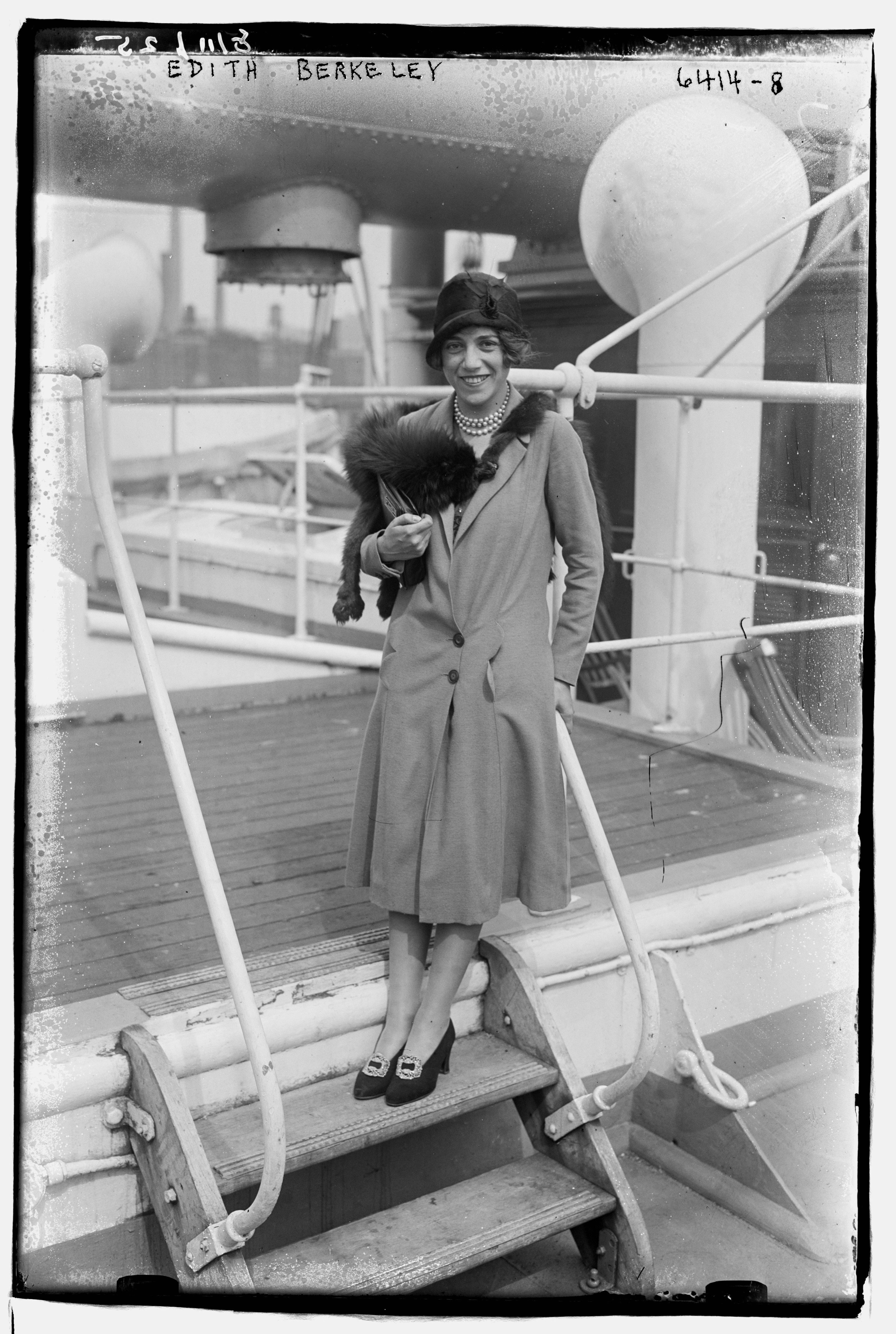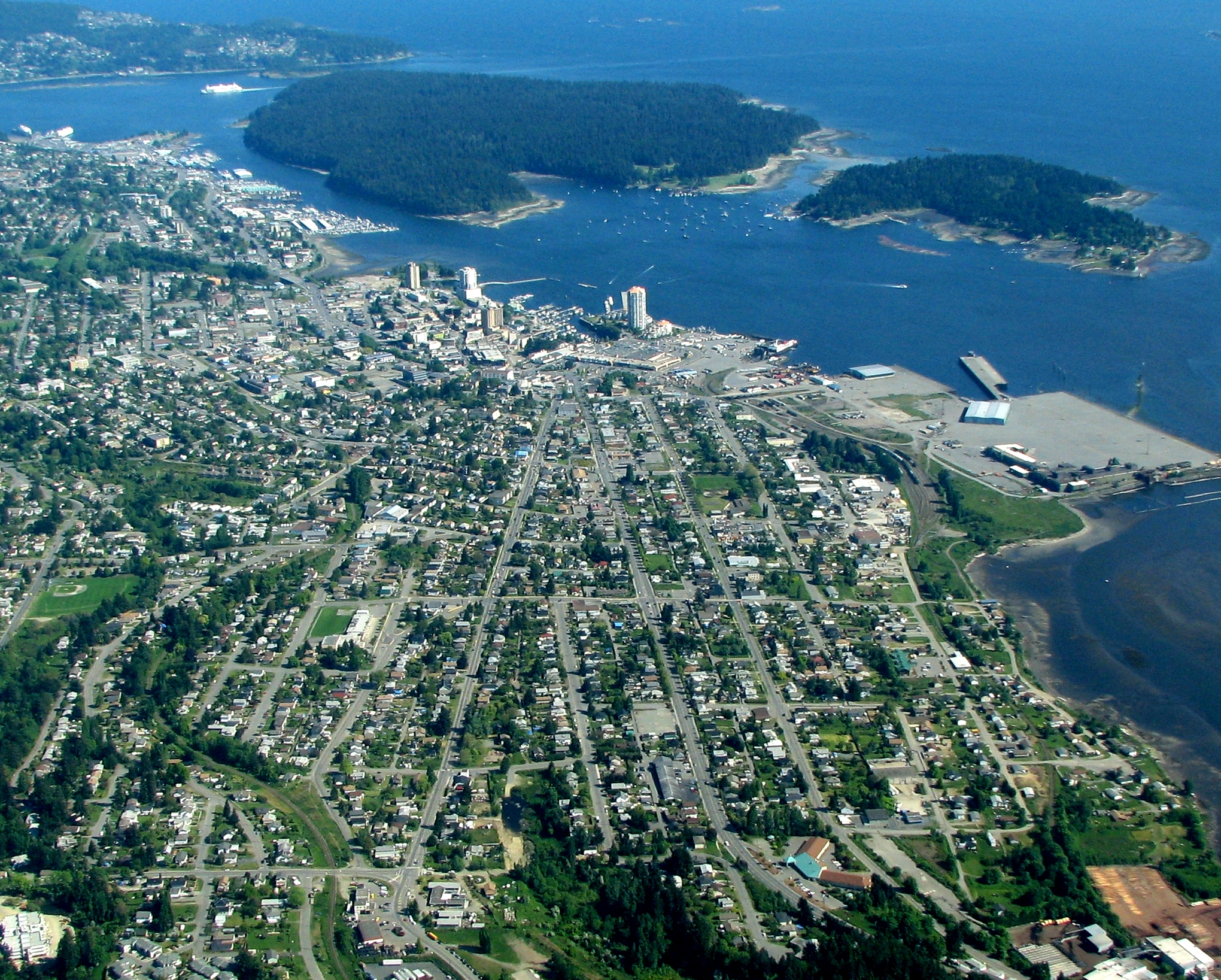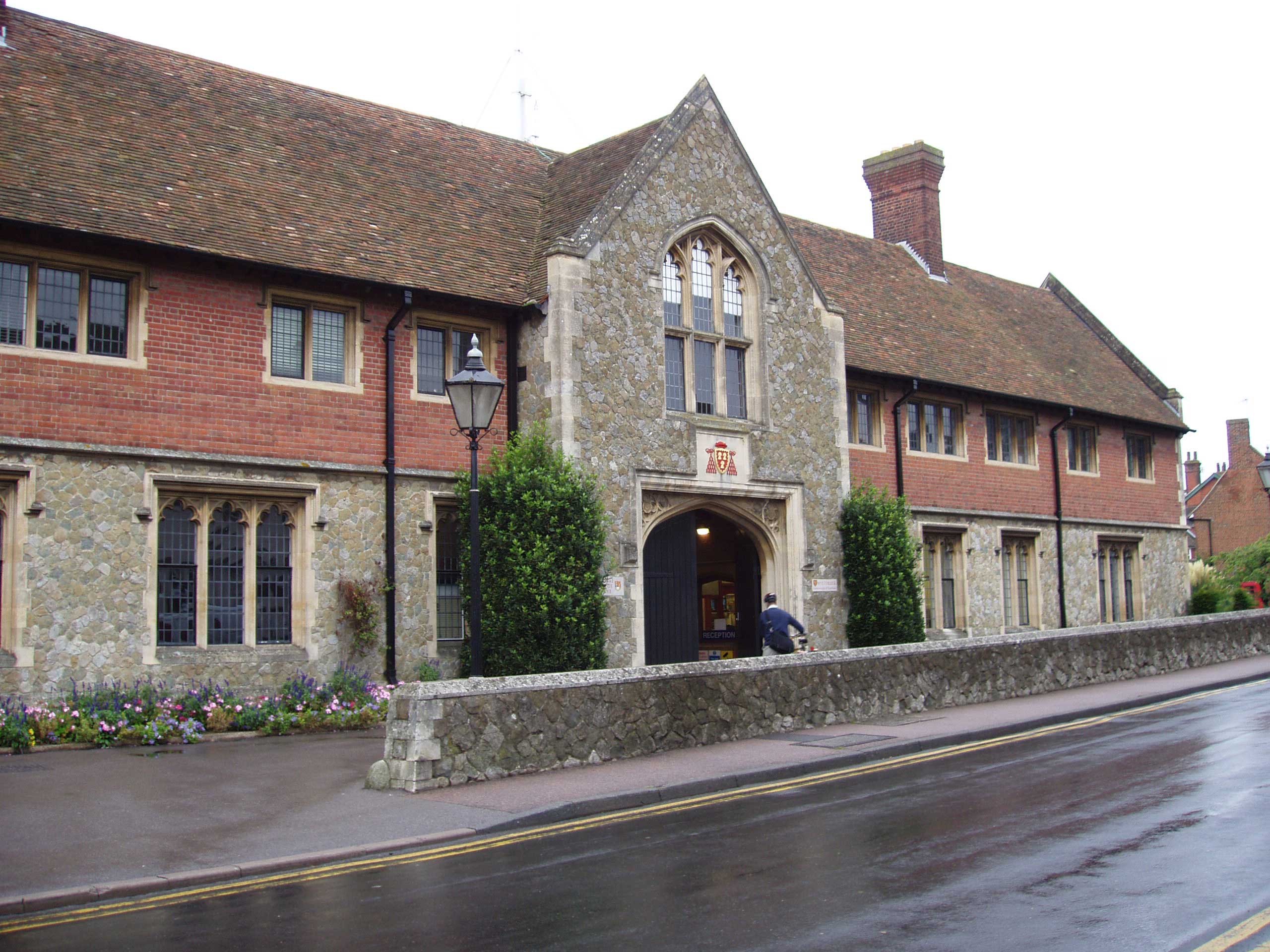|
Cyril J. Bergtheil
Cyril Jonas Bergtheil (2 December 1878 – 25 August 1973) known from around 1916 as Cyril Jonas Berkeley was an English chemist, bacteriologist, and zoologist of German ancestry. He worked in India from 1902 to 1912 serving as an Imperial Bacteriologist and later collaborated with his wife Edith Berkeley in studies on polychaetes. Early life Cyril was born in London, the son of Louis Michael Bergtheil and Alice Maud. While very young, his parents were divorced and his mother married again. It was his step-father Alfred James Puttick who introduced Cyril to science by introducing him to scientific periodicals and visits to the Royal Institution to attend lectures. He studied at St. Paul's school from 1891 to 1895 and moved to Nuremberg, where he learnt German and studied chemistry at the Industrieschule. Work 1987-1903 Cyril then went to University College London and worked in William Ramsay's laboratory from 1897 to 1899 alongside other researchers like Morris Trav ... [...More Info...] [...Related Items...] OR: [Wikipedia] [Google] [Baidu] |
Edith Berkeley
Edith Berkeley (1 September 1875–25 February 1963) was a Canadian marine biologist who specialized in the biology of polychaetes. The Edith Berkeley Memorial Lectures were established in the University of British Columbia in her memory in 1969. Edith was born in Tulbagh, South Africa to a bridge engineer Alfred Dunington and his wife Martha Treglohan. Edith studied at Wimbledon High School and completed a pre-medical course at the University of London, where she attended on scholarship. After passing the examination for the bachelor of medicine degree in 1897 she took an interest in chemistry and zoology, working under Professor Weldon who worked on polychaetes and Morris Travers in the William Ramsay Laboratory. In 1918, she gave up a paid position as zoology assistant at Columbia University to work as a volunteer for the Pacific Biological Station at Nanaimo in British Columbia Canada. As a volunteer she would be able to perform field work, whereas in a paid position, her wo ... [...More Info...] [...Related Items...] OR: [Wikipedia] [Google] [Baidu] |
Isaac Henry Burkill
Isaac Henry Burkill (18 May 1870 – 8 March 1965) was an English botanist who worked in India and in the Straits Settlements (present day Singapore). He worked primarily in economic botany but published extensively on plant biology, ethno-botany, insect-plant interactions and described several species. He published a two volume compilation on the plants of economic importance in the Malay Peninsula, collating local names and knowledge. He also wrote a detailed history of botany in India. The plant genera ''Burkillia'' and '' Burkillianthus'' were named in his honour. Life and career Burkill was born in Chapel Allerton, Leeds, Yorkshire, he studied at Repton School and received a B.A. with Honours in Natural Science from Caius College, Cambridge winning the Frank Smart Prize. He then joined the University Herbarium at Cambridge as Curator from 1891 to 1896 during which time he obtained a master's degree receiving a Walsingham medal in 1894. In 1897 he joined the Royal Botanic Gard ... [...More Info...] [...Related Items...] OR: [Wikipedia] [Google] [Baidu] |
1973 Deaths
Events January * January 1 - The United Kingdom, the Republic of Ireland and Denmark enter the European Economic Community, which later becomes the European Union. * January 15 – Vietnam War: Citing progress in peace negotiations, U.S. President Richard Nixon announces the suspension of offensive action in North Vietnam. * January 17 – Ferdinand Marcos becomes President for Life of the Philippines. * January 20 – Richard Nixon is sworn in for a second term as President of the United States. Nixon is the only person to have been sworn in twice as President ( 1969, 1973) and Vice President of the United States ( 1953, 1957). * January 22 ** George Foreman defeats Joe Frazier to win the heavyweight world boxing championship. ** A Royal Jordanian Boeing 707 flight from Jeddah crashes in Kano, Nigeria; 176 people are killed. * January 27 – U.S. involvement in the Vietnam War ends with the signing of the Paris Peace Accords. February * February 8 – A militar ... [...More Info...] [...Related Items...] OR: [Wikipedia] [Google] [Baidu] |
1878 Births
Events January–March * January 5 – Russo-Turkish War – Battle of Shipka Pass IV: Russian and Bulgarian forces defeat the Ottoman Empire. * January 9 – Umberto I becomes King of Italy. * January 17 – Battle of Philippopolis: Russian troops defeat the Turks. * January 23 – Benjamin Disraeli orders the British fleet to the Dardanelles. * January 24 – Russian revolutionary Vera Zasulich shoots at Fyodor Trepov, Governor of Saint Petersburg. * January 28 – ''The Yale News'' becomes the first daily college newspaper in the United States. * January 31 – Turkey agrees to an armistice at Adrianople. * February 2 – Greece declares war on the Ottoman Empire. * February 7 – Pope Pius IX dies, after a 31½ year reign (the longest definitely confirmed). * February 8 – The British fleet enters Turkish waters, and anchors off Istanbul; Russia threatens to occupy Istanbul, but does not carry out the threat. * Febru ... [...More Info...] [...Related Items...] OR: [Wikipedia] [Google] [Baidu] |
English Chemists
English usually refers to: * English language * English people English may also refer to: Peoples, culture, and language * ''English'', an adjective for something of, from, or related to England ** English national identity, an identity and common culture ** English language in England, a variant of the English language spoken in England * English languages (other) * English studies, the study of English language and literature * ''English'', an Amish term for non-Amish, regardless of ethnicity Individuals * English (surname), a list of notable people with the surname ''English'' * People with the given name ** English McConnell (1882–1928), Irish footballer ** English Fisher (1928–2011), American boxing coach ** English Gardner (b. 1992), American track and field sprinter Places United States * English, Indiana, a town * English, Kentucky, an unincorporated community * English, Brazoria County, Texas, an unincorporated community * En ... [...More Info...] [...Related Items...] OR: [Wikipedia] [Google] [Baidu] |
English Bacteriologists
English usually refers to: * English language * English people English may also refer to: Peoples, culture, and language * ''English'', an adjective for something of, from, or related to England ** English national identity, an identity and common culture ** English language in England, a variant of the English language spoken in England * English languages (other) * English studies, the study of English language and literature * ''English'', an Amish term for non-Amish, regardless of ethnicity Individuals * English (surname), a list of notable people with the surname ''English'' * People with the given name ** English McConnell (1882–1928), Irish footballer ** English Fisher (1928–2011), American boxing coach ** English Gardner (b. 1992), American track and field sprinter Places United States * English, Indiana, a town * English, Kentucky, an unincorporated community * English, Brazoria County, Texas, an unincorporated community * Englis ... [...More Info...] [...Related Items...] OR: [Wikipedia] [Google] [Baidu] |
Nanaimo
Nanaimo ( ) is a city on the east coast of Vancouver Island, in British Columbia, Canada. As of the Canada 2021 Census, 2021 census, it had a population of 99,863, and it is known as "The Harbour City." The city was previously known as the "Hub City," which was attributed to its original layout design, whose streets radiated from the shoreline like the spokes of a wagon wheel, and to its central location on Vancouver Island. Nanaimo is the headquarters of the Regional District of Nanaimo. Nanaimo is served by the coast-spanning Island Highway, the Island Rail Corridor, the BC Ferries system, and a local airport. History The Indigenous peoples of the area that is now known as Nanaimo are the Snuneymuxw. An anglicised spelling and pronunciation of that word gave the city its current name. The first Europeans known to reach Nanaimo Harbour were members of the 1791 Spanish voyage of Juan Carrasco (explorer), Juan Carrasco, under the command of Francisco de Eliza. They gave it ... [...More Info...] [...Related Items...] OR: [Wikipedia] [Google] [Baidu] |
University Of British Columbia
The University of British Columbia (UBC) is a public university, public research university with campuses near Vancouver and in Kelowna, British Columbia. Established in 1908, it is British Columbia's oldest university. The university ranks among the top three universities in Canada. With an annual research budget of $759million, UBC funds over 8,000 projects a year. The Vancouver campus is situated adjacent to the University Endowment Lands located about west of downtown Vancouver. UBC is home to TRIUMF, Canada's national laboratory for Particle physics, particle and nuclear physics, which houses the world's largest cyclotron. In addition to the Peter Wall Institute for Advanced Studies and Stuart Blusson Quantum Matter Institute, UBC and the Max Planck Society collectively established the first Max Planck Institute in North America, specializing in quantum materials. One of the largest research libraries in Canada, the UBC Library system has over 9.9million volumes among it ... [...More Info...] [...Related Items...] OR: [Wikipedia] [Google] [Baidu] |
Wilhelm Michaelsen
Johann Wilhelm Michaelsen (9 October 1860, Hamburg - 18 February 1937) was a German zoologist who was a world authority on the Oligochaeta which includes the earthworms. He named and described more than a thousand new species. Michaelsen was born to Friedrich Rudolph and Johanna Catharina Ferdinandine née Köhn. In 1887 he commenced work at the Hamburg Zoological Museum, at first as a research assistant. He was later to become ''Hauptkustos'' (chief curator). Alfred Lothar Wegener (1880-1930) was a friend of Michaelsen and made use of his biogeographical work for some of his ideas on plate tectonics. Michaelsen named a species of earthworm after him as ''Wegeneriella'' Michaelsen, 1933. He also collaborated with John Stephenson. Though he also worked in the study of Tunicates and Polychaetes, Michaelsen was best known for his work on Oligochaeta. To that end, he travelled to southern regions of South America, Africa and Australia to investigate the fossil records of ... [...More Info...] [...Related Items...] OR: [Wikipedia] [Google] [Baidu] |
Wye College
bio sciences -> social sciences -> business school Pictures of OLT, Old Hall,Cloister, Parlour --> The College of St Gregory and St Martin at Wye, commonly known as Wye College, was an education and research institution in the village of Wye, Kent. In 1447, Cardinal John Kempe founded his chantry there which also educated local children. , it still includes a rare, complete example of medieval chantry college buildings. After abolition in 1545, parts of the chantry buildings were variously occupied as mansion, grammar school and charity school, before purchase by Kent and Surrey County Councils to provide technical education. For over a hundred years Wye became that college of London University most concerned with rural subjects, including agricultural sciences; business management; agriculture; horticulture, and agricultural economics. Chemist and Actonian Prize winner, Louis Wain developed synthetic auxin selective herbicides 2,4-DB, MCPB, Bromoxynil and Ioxynil at Wye ... [...More Info...] [...Related Items...] OR: [Wikipedia] [Google] [Baidu] |
Polychaete
Polychaeta () is a paraphyletic class (biology), class of generally marine invertebrate, marine annelid worms, common name, commonly called bristle worms or polychaetes (). Each body segment has a pair of fleshy protrusions called parapodia that bear many bristles, called chaetae, which are made of chitin. More than 10,000 species are described in this class. Common representatives include the lugworm (''Arenicola marina'') and the Alitta virens, sandworm or Alitta succinea, clam worm ''Alitta''. Polychaetes as a class are robust and widespread, with species that live in the coldest ocean temperatures of the abyssal plain, to forms which tolerate the extremely high temperatures near hydrothermal vents. Polychaetes occur throughout the Earth's oceans at all depths, from forms that live as plankton near the surface, to a 2- to 3-cm specimen (still unclassified) observed by the robot ocean probe Nereus (underwater vehicle), ''Nereus'' at the bottom of the Challenger Deep, the deepes ... [...More Info...] [...Related Items...] OR: [Wikipedia] [Google] [Baidu] |
Morris Travers
Morris William Travers, FRS (24 January 1872 – 25 August 1961) was an English chemist who worked with Sir William Ramsay in the discovery of xenon, neon and krypton. His work on several of the rare gases earned him the name ''Rare gas Travers'' in scientific circles. He was the founding director of the Indian Institute of Science. Early life Travers was born in Kensington, London, the son of William Travers MD, FRCS (1838-1906), an early pioneer of aseptic surgical techniques. His mother was Anne Pocock. Travers went to school at Ramsgate, Woking and Blundell's School. Career He then went to University College, where he began to work with Sir William Ramsay. Travers helped Ramsay to determine the properties of the newly discovered gases argon and helium. They also heated minerals and meteorites in the search for further gases, but found none. Then in 1898 they obtained a large quantity of liquid air and subjected it to fractional distillation. Spectral analysis of the l ... [...More Info...] [...Related Items...] OR: [Wikipedia] [Google] [Baidu] |




.gif)
